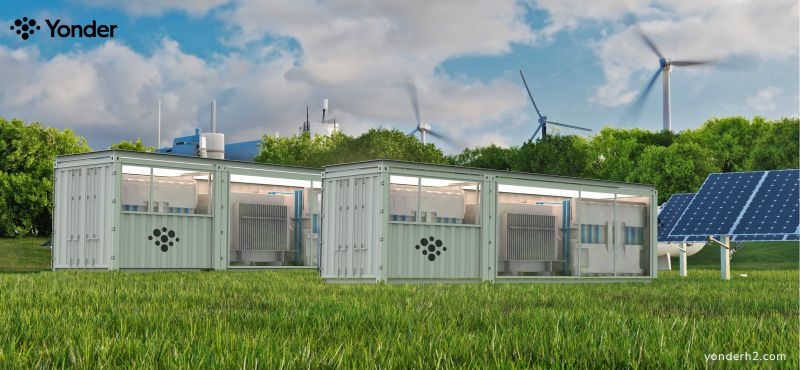Selecting the Best Converter Transformer: Insights for Power Engineers

Converter transformers are pivotal in the efficient conversion of electrical power between alternating current (AC) and direct current (DC). For power engineers, choosing the best converter transformer is crucial for ensuring the reliability, efficiency, and stability of electrical systems. This article explores key considerations for selecting the best converter transformer and highlights some of the top options available to power engineers.
Key Considerations for Selecting the Best Converter Transformer
- Voltage and Current Ratings: The transformer must be rated for the specific voltage and current requirements of the application. It should handle the maximum expected load while providing stable operation. Ensuring compatibility with system voltage levels and load conditions is critical for optimal performance.
- Efficiency: High efficiency is essential to minimize energy losses during power conversion. Look for transformers with high efficiency ratings, as these reduce operational costs and improve overall system performance.
- Cooling System: Effective cooling is necessary to manage the heat generated during operation. Converter transformers can be equipped with various cooling systems, such as air or oil cooling. The choice depends on the application’s size, environmental conditions, and heat dissipation needs.
- Insulation and Build Quality: The quality of insulation materials affects the transformer’s durability and reliability. High-quality insulation is required to handle high voltages and prevent electrical breakdown. Additionally, robust construction ensures long-term operational stability.
- Phase Shifting Capability: For applications requiring synchronization between AC and DC systems, the ability to handle phase shifts is important. Transformers with phase-shifting capabilities help manage complex power system integration.
- Cost and Budget: While high-performance transformers can be costly, balancing cost with performance and reliability is essential. Consider both initial investment and long-term operational costs, including maintenance and energy losses.
- Vendor Reputation and Support: Choose transformers from reputable manufacturers known for high-quality products and reliable customer support. Strong after-sales support and service are crucial for addressing any issues that may arise.
Top Converter Transformers for Power Engineers
Several transformer models and manufacturers stand out for their exceptional performance and reliability. Here are some of the best converter transformers available:
- Siemens Converter Transformers
Features: Siemens offers a range of high-quality converter transformers designed for HVDC applications. Their transformers are known for efficiency, robust construction, and advanced cooling technologies.
Advantages: Siemens transformers are renowned for their reliability and long-term performance. They also come with comprehensive support and maintenance services. - YonderH2 Converter Transformers
Features: YonderH2 converter transformers are designed with high efficiency to optimize energy conversion. They feature a compact and robust construction, making them suitable for various installations, including limited-space environments. The transformers are equipped with advanced cooling systems, such as forced air or oil cooling, to maintain optimal operating temperatures and ensure consistent performance.
Advantages: These transformers provide reliable and efficient power conversion, reducing energy losses and operational costs. Their compact design allows for easy installation and flexibility in diverse settings, including industrial and renewable energy applications. The advanced cooling systems enhance durability and extend the lifespan of the transformers, minimizing maintenance requirements.
- ABB Converter Transformers
Features: ABB provides state-of-the-art converter transformers with advanced insulation systems and cooling options. Their transformers are optimized for high efficiency and are used in various HVDC and renewable energy applications.
Advantages: ABB’s products are praised for their high efficiency, durability, and innovative design. The company also offers strong technical support and service.
- General Electric (GE) Converter Transformers
Features: GE’s converter transformers are designed for high performance in demanding environments. They feature advanced materials and cooling technologies, ensuring efficient and reliable power conversion.
Advantages: GE transformers are known for their robustness and efficiency. The company provides extensive technical support and customization options. - Schneider Electric Converter Transformers
Features: Schneider Electric offers converter transformers with a focus on energy efficiency and compact design. Their transformers are suitable for various applications, including industrial and renewable energy systems.
Advantages: Schneider Electric’s transformers are efficient and cost-effective, with a strong emphasis on energy savings and environmental impact. - Toshiba Converter Transformers
Features: Toshiba provides high-quality converter transformers with advanced features for high-voltage applications. Their products are designed to handle large loads and complex power systems efficiently.
Advantages: Toshiba transformers are known for their durability and high performance. The company also offers reliable after-sales support and service.
Conclusion
Choosing the best converter transformer requires careful consideration of factors such as voltage ratings, efficiency, cooling systems, and build quality. Leading manufacturers like Siemens, ABB, GE, Schneider Electric, and Toshiba offer high-performance transformers designed to meet various application needs. For power engineers, selecting the right converter transformer is essential for optimizing system performance and ensuring reliable power conversion. By evaluating these key factors and considering top industry options, engineers can make informed decisions and enhance the efficiency and stability of their electrical systems.
- Industry
- Art
- Causes
- Crafts
- Dance
- Drinks
- Film
- Fitness
- Food
- Jocuri
- Gardening
- Health
- Home
- Literature
- Music
- Networking
- Alte
- Party
- Religion
- Shopping
- Sports
- Theater
- Wellness
- News


